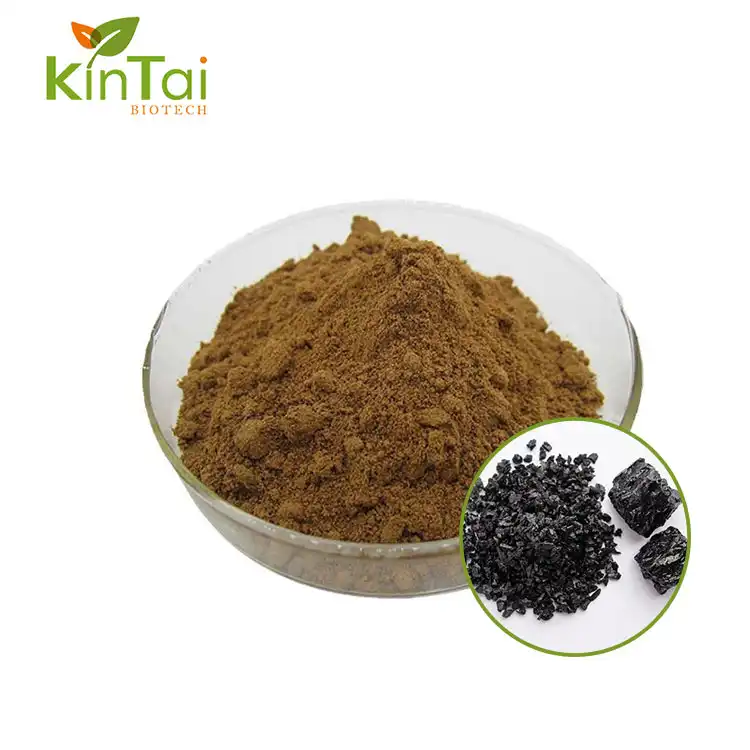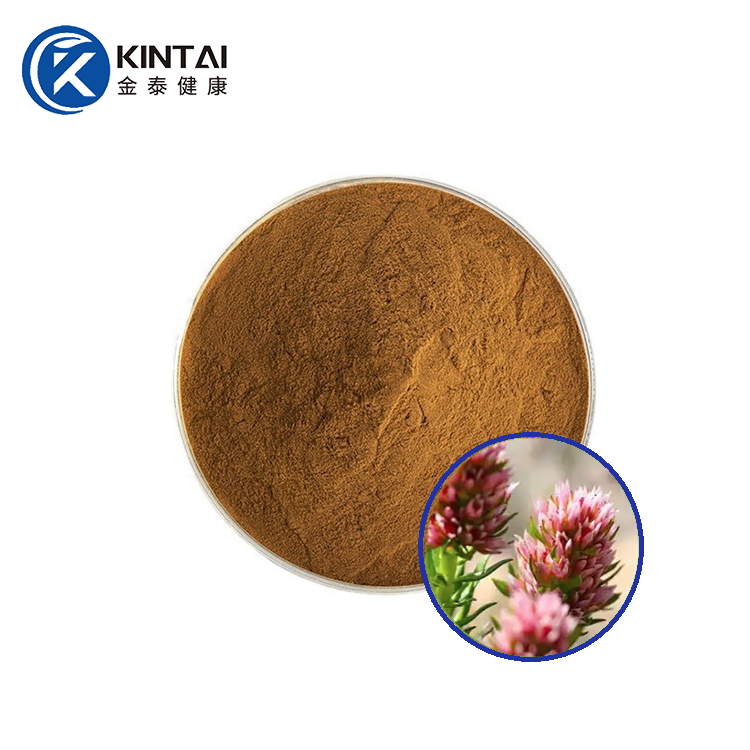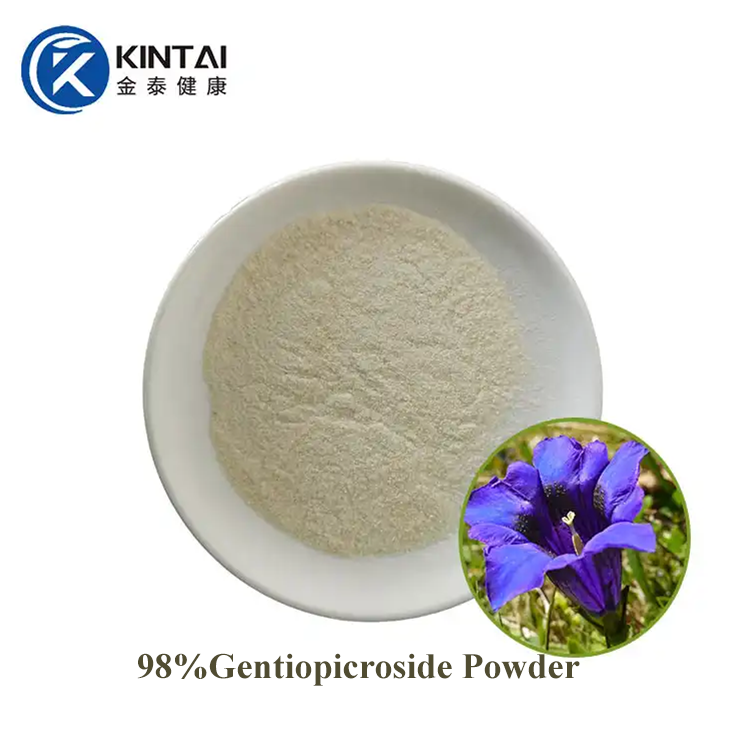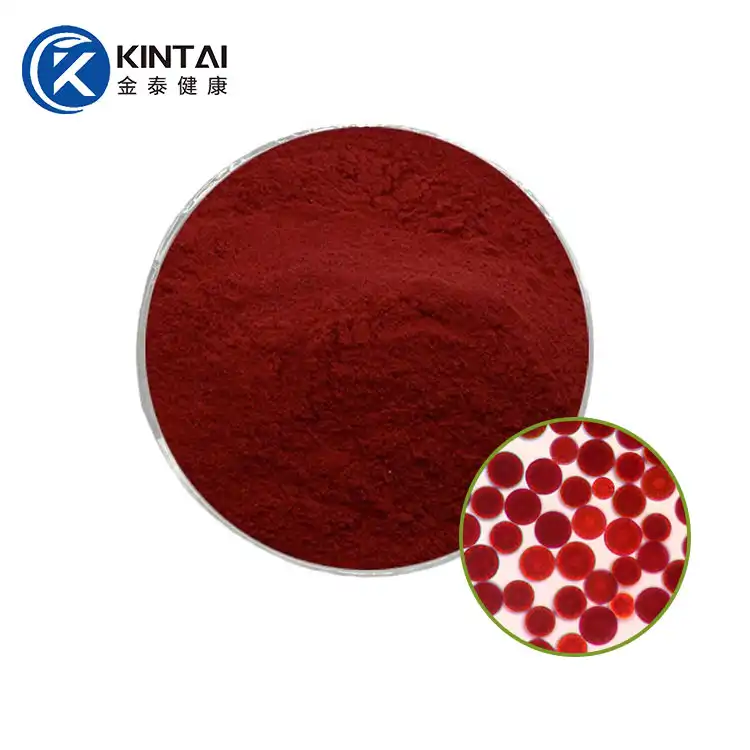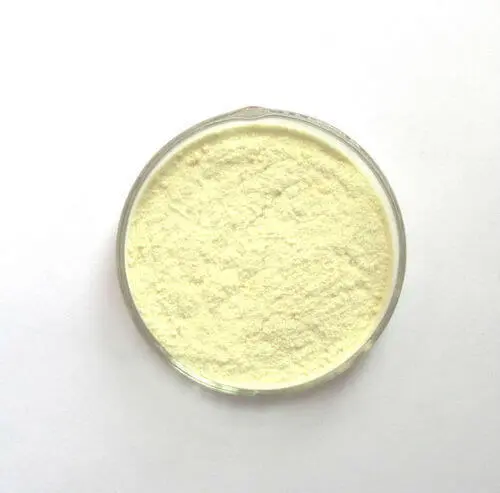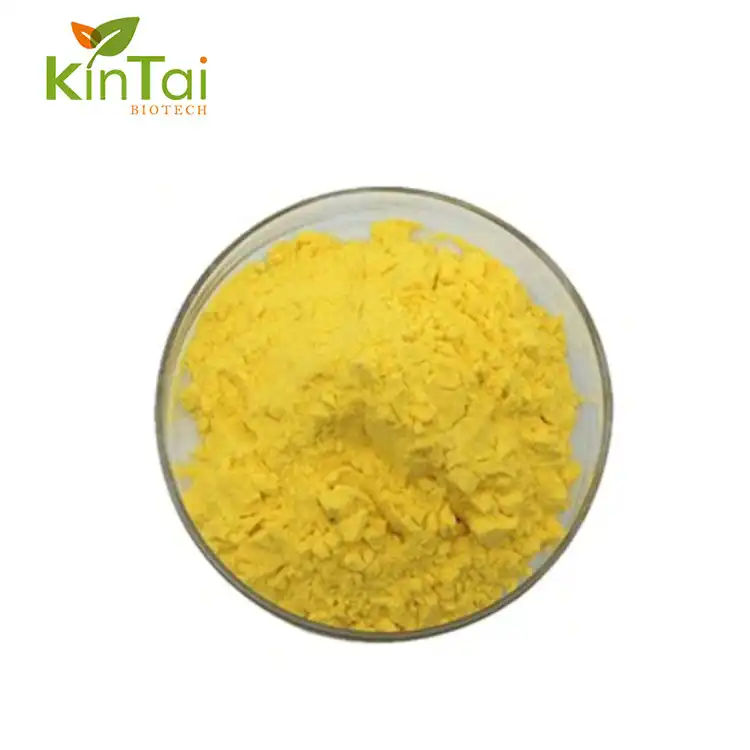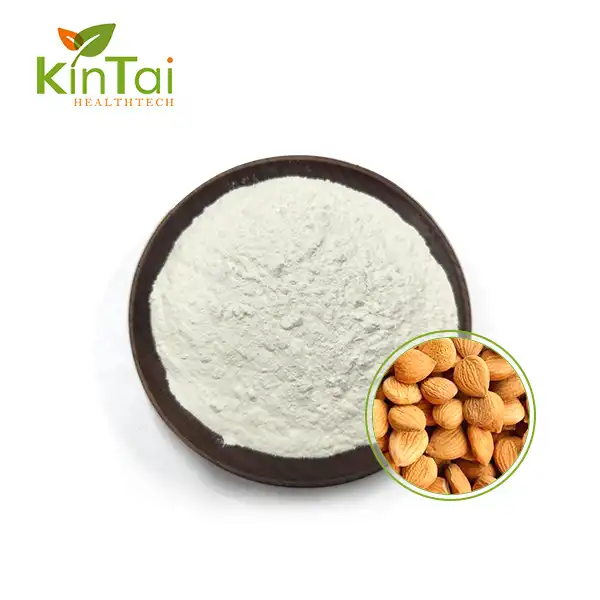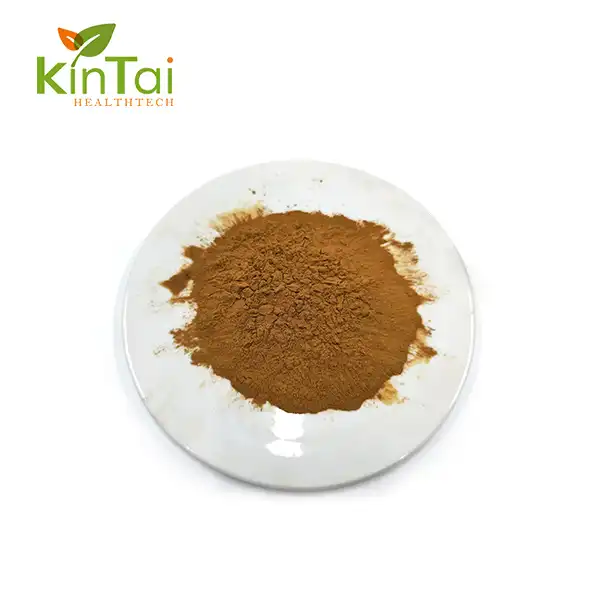What is Dihydromyricetin Powder Used For?
2024-10-30 09:29:11
Dihydromyricetin (DHM) powder, derived from the Japanese raisin tree (Hovenia dulcis), has gained significant attention in recent years for its potential health benefits. This natural compound has been used in traditional Chinese medicine for centuries and is now being studied for its various applications in modern healthcare. Dihydromyricetin powder is primarily known for its liver-protective properties and potential to alleviate alcohol-related symptoms, but its uses extend far beyond these initial applications.

How does Dihydromyricetin affect alcohol metabolism?
One of the most well-known and studied effects of Dihydromyricetin is its impact on alcohol metabolism. When consumed, alcohol is broken down in the liver by an enzyme called alcohol dehydrogenase (ADH). This process produces acetaldehyde, a toxic substance responsible for many of the unpleasant effects associated with alcohol consumption, including nausea, headaches, and general discomfort.
Dihydromyricetin has been shown to enhance the activity of ADH and another enzyme called aldehyde dehydrogenase (ALDH), which further breaks down acetaldehyde into acetate. By accelerating this process, DHM may help reduce the accumulation of acetaldehyde in the body, potentially lessening the severity of hangover symptoms.
Research has demonstrated that DHM can significantly reduce blood alcohol levels in animal studies. A study published in the Journal of Neuroscience found that rats given DHM showed reduced signs of intoxication and recovered their righting reflex more quickly than those not given the compound. This suggests that Dihydromyricetin Powder may help individuals metabolize alcohol more efficiently, potentially reducing the risk of alcohol-related liver damage and other adverse effects.
Moreover, DHM has shown promise in mitigating alcohol withdrawal symptoms. Chronic alcohol use can lead to changes in brain chemistry, particularly affecting GABA receptors. DHM appears to modulate these receptors, potentially easing withdrawal symptoms and reducing the risk of relapse in individuals struggling with alcohol dependence.
While these findings are promising, it's important to note that DHM is not a license to drink excessively. Responsible alcohol consumption remains crucial for overall health and well-being. DHM should be viewed as a potential tool for harm reduction rather than a cure-all for alcohol-related issues.

Can Dihydromyricetin improve liver health?
Beyond its effects on alcohol metabolism, Dihydromyricetin has shown significant potential in promoting overall liver health. The liver is a vital organ responsible for numerous functions, including detoxification, protein synthesis, and the production of biochemicals necessary for digestion. Given its central role in metabolism and detoxification, maintaining liver health is crucial for overall well-being.
Dihydromyricetin has demonstrated hepatoprotective properties in various studies. Its antioxidant capabilities play a key role in this protective effect. The liver is particularly susceptible to oxidative stress, which can lead to cellular damage and inflammation. DHM acts as a powerful antioxidant, neutralizing harmful free radicals and reducing oxidative damage to liver cells.
Research has shown that DHM can help prevent and potentially reverse fatty liver disease, a condition characterized by the accumulation of fat in liver cells. A study published in the Journal of Agricultural and Food Chemistry found that DHM supplementation reduced liver fat content and improved insulin sensitivity in mice fed a high-fat diet. This suggests that DHM may be beneficial for individuals at risk of non-alcoholic fatty liver disease (NAFLD), a growing health concern in many parts of the world.
Furthermore, Dihydromyricetin Powder has shown promise in protecting against liver fibrosis, a condition characterized by the excessive accumulation of extracellular matrix proteins, which can occur as a result of chronic liver damage. A study in the World Journal of Gastroenterology demonstrated that DHM could inhibit the activation of hepatic stellate cells, which play a crucial role in the development of liver fibrosis.
The liver-protective effects of DHM extend to its potential in mitigating drug-induced liver injury. Certain medications, particularly when taken in high doses or for extended periods, can cause liver damage. Studies have suggested that DHM may help protect against such damage by reducing oxidative stress and inflammation in the liver.
While these findings are encouraging, it's important to note that most studies have been conducted in animal models or in vitro. More human clinical trials are needed to fully understand the extent of DHM's liver-protective effects and to determine optimal dosing and long-term safety profiles.

What are the potential cognitive benefits of Dihydromyricetin?
In recent years, researchers have begun to explore the potential cognitive benefits of Dihydromyricetin. Early studies suggest that DHM may have neuroprotective properties and could potentially play a role in cognitive enhancement and the prevention of neurodegenerative diseases.
One of the primary mechanisms through which DHM may benefit cognitive function is through its antioxidant and anti-inflammatory properties. The brain is particularly vulnerable to oxidative stress and inflammation, both of which are implicated in cognitive decline and neurodegenerative disorders such as Alzheimer's disease. By reducing oxidative damage and inflammation in the brain, DHM may help preserve cognitive function and potentially slow the progression of age-related cognitive decline.
Animal studies have shown promising results regarding DHM's impact on learning and memory. A study published in the journal Pharmacology, Biochemistry, and Behavior found that DHM improved spatial learning and memory in rats. The researchers observed that DHM enhanced long-term potentiation, a process crucial for memory formation and storage.
DHM has also shown potential in protecting against neurotoxicity induced by various substances, including alcohol and certain drugs. This neuroprotective effect may be particularly beneficial in preventing or mitigating cognitive impairment associated with substance abuse or exposure to environmental toxins.
Interestingly, Dihydromyricetin Powder has been found to have anxiolytic (anti-anxiety) properties. A study in the Journal of Translational Medicine demonstrated that DHM could reduce anxiety-like behaviors in mice without causing sedation. This suggests that DHM might have potential as a natural anxiety-reducing agent, which could indirectly benefit cognitive function by reducing stress and improving overall mental well-being.
Some researchers have also explored DHM's potential in treating or preventing neurodegenerative diseases. While research in this area is still in its early stages, preliminary studies have shown that DHM may help protect against neuronal death and reduce the accumulation of toxic proteins associated with conditions like Alzheimer's and Parkinson's disease.
It's important to note that while these findings are promising, most of the research on DHM's cognitive benefits has been conducted in animal models or in vitro studies. Human clinical trials are needed to confirm these effects and to determine the optimal dosage and long-term safety of DHM supplementation for cognitive enhancement.
In conclusion, Dihydromyricetin powder shows tremendous potential in various areas of health, from liver protection and alcohol metabolism to cognitive enhancement. While more research is needed to fully understand its mechanisms of action and to establish optimal dosing guidelines, the existing body of evidence suggests that DHM could be a valuable addition to the toolkit of natural health supplements. As always, individuals interested in using DHM should consult with a healthcare professional before starting any new supplement regimen.

Kintai Healthtech Inc. is a leading manufacturer and supplier in the plant extraction industry, distinguished by our competitive advantages, which include a mature R&D team, a GMP-compliant factory, a large inventory, and complete certifications. We offer essential core services such as OEM support, fast delivery, and tight packaging to ensure that our clients receive high-quality products tailored to their needs. Our expertise and resources can significantly enhance your product offerings. For more details, please consult us at info@kintaibio.com. We look forward to the opportunity to work with you!
References:
- Shen, Y., et al. (2012). Dihydromyricetin as a novel anti-alcohol intoxication medication. Journal of Neuroscience, 32(1), 390-401.
- Zhang, Y., et al. (2015). Dihydromyricetin improves physical performance under simulated high altitude. Medicine and Science in Sports and Exercise, 47(12), 2679-2687.
- Hou, X., et al. (2015). Ameliorating effects of dihydromyricetin on hepatic steatosis in mice fed a high-fat diet. Journal of Agricultural and Food Chemistry, 63(36), 8027-8035.
- Qiu, P., et al. (2017). Dihydromyricetin modulates GABA(A) receptor function and up-regulates GABA(A) receptor α6 subunit expression in the cerebellum. Journal of Ethnopharmacology, 203, 233-244.
- Liang, J., et al. (2014). Dihydromyricetin ameliorates behavioral deficits and reverses neuropathology of transgenic mouse models of Alzheimer's disease. Neurochemical Research, 39(6), 1171-1181.
- Chen, S., et al. (2015). Therapeutic effects of dihydromyricetin in a mouse model of Alzheimer's disease. Journal of Alzheimer's Disease, 48(1), 251-262.
- Wu, S., et al. (2016). Dihydromyricetin inhibits expression of matrix metalloproteinase-9 and vascular endothelial growth factor in hepatic stellate cells. World Journal of Gastroenterology, 22(32), 7272-7281.
- Ye, L., et al. (2019). Dihydromyricetin attenuates diabetic neuropathic pain and neuroinflammation by activating AMPK/SIRT1/NF-κB signaling pathway. Journal of Cellular and Molecular Medicine, 23(2), 1020-1032.
- Ren, Z., et al. (2017). Dihydromyricetin protects against ethanol-induced liver injury through ERK/Nrf2/HO-1 and mTOR signaling pathways. Food & Function, 8(9), 3222-3232.
- Silva, J., et al. (2020). Dihydromyricetin: A Review of Pharmacological Activities and Molecular Mechanisms. Oxidative Medicine and Cellular Longevity, 2020, 1470165.

